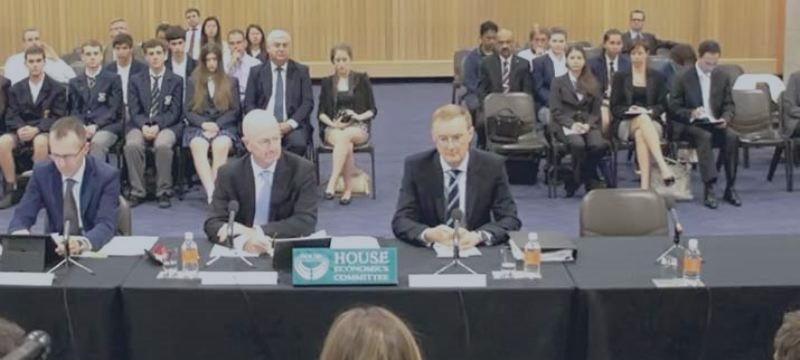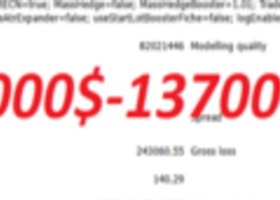"A TRUCE": Assistant Governor (economic) Christopher Kent (left), Governor of Australia's Central Bank (RBI) Glenn Stevens (middle) and Deputy Governor Philip Lowe in the photo archive at a hearing with the HOUSE of REPRESENTATIVES Economics Committee of Australia. The Governor of the central bank of sekawasan Asia Pacific have started doing a "ceasefire" in the currency war related their readiness in the face of raising interest rates by the US central bank (The Fed).
The Governor of the central bank in the Asia Pacific region do a "ceasefire" in the global currency war because they prepare face ascent of interest rates by the U.s. Federal Reserve (Fed). By stopping the appeal in order to lower the exchange rate exchange rate in moneternya policy statement Tuesday (4/8), the Governor of the Central Bank of Australia (RBA) Glenn Stevens following steps taken New Zealand's Central Bank Governor, Graeme Wheeler which reduces concerns about the statement is too strong a dollar of that kiwi country.
In Japan, Bank of Japan Governor (of the BoJ) Haruhiko Kuroda said last month that it had no plans to extend the monetary stimulus injected into the central bank of Japan's economy.
It doesn't have to mean the end of the loss to the countries currency advanced economies in the region. Instead it showed a rise in U.S. interest rates raising the prospect of recovering a pressure on the countries of the region to loosen policy.
Australia dollar is already down to one cent in the median prediction of strategists for the end of the year, while the New Zealand Kiwis and yen fall below their porkas in June and July.
"This is only a ' truce ' temporary because the Fed's rate of ascent," said James Rickards, author of "Currency War: The Making of the next Global crisis" and Chairman of global strategist at West Shore Funds.
"The banks wanted to make adjustments in anticipation of" the Fed, "which made the dollar the more powerful and their currencies weakened, without any further action from them," he said.
In a statement after retaining the main interest rate unchanged at the level of the RBA low 2% during this time, Stevens, associate it with the prospect of a U.S. loan interest is higher, and Australia says, "just make adjustments against significant decline in primary commodity prices." This is the first time in a year she refrained from giving the signals about the strength of his country's currency too.
Dollars Australia up 1.3%, the highest in two months, became U.S. cents, Tuesday 73,80 in New York. That's up from low level over the past six years 72,35 cents on July 31, and then compared with the predictions of the experts strategies 72 cents for the end of the year, based on a Bloomberg compiled porkas.
The Heat Causes The Atmosphere
"The currency War that causes heat of the atmosphere," said Sean Callow, strategist of Westpac Banking Corp. in Sydney. Rise of the u.s. dollar to be "a key factor" here, he said.
However, Stevens did not have to worry about continued Australia dollar rally, said Callow.
Dollar little changed since the New Zealand PM John Key, the former head of currency trading at Merrill Lynch, said the 20 last July that the exchange rate exchange rate already down more quickly than anticipated. Kiwi plummeted to a six-year low level 64,99 cents U.S. on July 16, a week before the Governor of central bank of New Zealand (RBNZ) Wheeler slashed interest rates. It can be compared to the median porkas strategists 65-cents to the end of the year.
"Central banks around the world waited for the Fed to raise rates," said Chris Chapman, fixed income broker Manulife Asset Management, based in London. "The RBA and the RBNZ are already adjusting their comments" because they saw "strong decline this year and the possibility of reaching a level which is much more fun," he said.
While Rickards from West Shore says, the U.S. central bank won't raise rates on loans from a level close to zero percent this year, the brokerage estimated the odds of about 75% for the possibility of taking steps by the Fed before the Fed's next meeting in December. It is based on the assumption that the effective Fed rate will range 0,375% after the first ascent.
The yen declined 12% since the purchase of the BoJ's plan to extend its assets in October, and last June went down to low levels of 125,86 in 13 years against the dollar. Governor of the BoJ Haruhiko Kuroda dismissed the possibility of extended his purchase bonds for now. https://www.mql5.com/en/signals/120434#!tab=history



